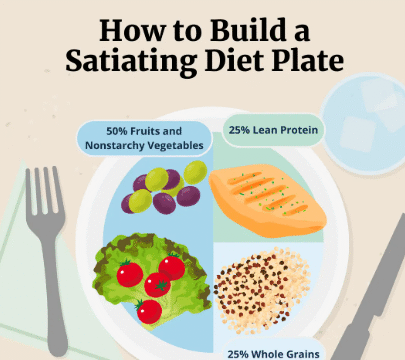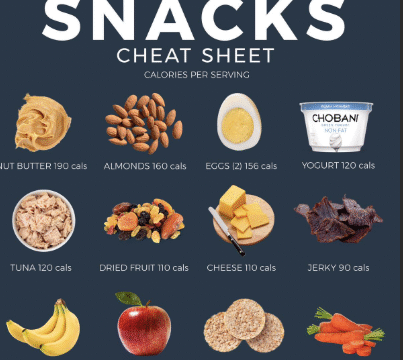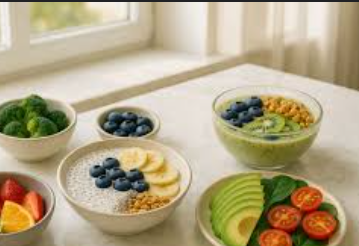When it comes to eating well, whole foods—foods that are minimally processed and close to their natural state—can make a big difference.
Unlike heavily processed options, whole foods are often more nutrient-dense and satisfying, which may support healthy weight management over time.
What Are Whole Foods?
Whole foods are foods that haven’t been refined or processed much.
They usually contain more vitamins, minerals, fiber, and natural nutrients compared to packaged or processed snacks. Examples include:
- Fresh fruits and vegetables
- Whole grains like oats, quinoa, and brown rice
- Nuts and seeds
- Lean proteins such as fish, eggs, and legumes
How Whole Foods Can Help with Weight Management
1. Naturally Filling
Many whole foods—like vegetables, fruits, and whole grains—are rich in fiber and water. This helps you feel full without needing to eat large amounts of calories.
2. More Nutrients, Fewer Empty Calories
Whole foods provide vitamins, minerals, and antioxidants that support overall health. Processed foods, on the other hand, are often high in added sugars, sodium, or unhealthy fats.
3. Balanced Energy
Protein-rich whole foods (like beans, eggs, or fish) and high-fiber foods (like oats and apples) help keep your energy stable and reduce sudden cravings.
Examples of Whole Foods for Weight-Friendly Eating
- Leafy greens: Spinach, kale, and lettuce are low in calories but high in nutrients.
- Berries: Strawberries, blueberries, and raspberries are rich in antioxidants and fiber.
- Whole grains: Quinoa, oats, and brown rice support lasting fullness.
- Legumes: Beans, lentils, and chickpeas are packed with protein and fiber.
- Nuts and seeds: Almonds, chia seeds, and sunflower seeds provide healthy fats and crunch.
- Lean proteins: Eggs, fish, and skinless poultry help preserve muscle while supporting satiety.
Tips for Adding More Whole Foods
- Shop the outer aisles of the grocery store, where fresh produce and proteins are usually found.
- Prep ahead by chopping vegetables and cooking whole grains for easy meals.
- Snack smart with fruit, yogurt, or a handful of nuts instead of packaged chips or sweets.
- Aim for balance by combining whole food groups—fiber, protein, and healthy fats—in every meal.
Final Thoughts
Whole foods don’t just fuel your body with better nutrition; they also support habits that can make weight management easier and more sustainable. By choosing fresh, minimally processed foods most of the time, you give your body what it needs to stay satisfied, energized, and healthy.






